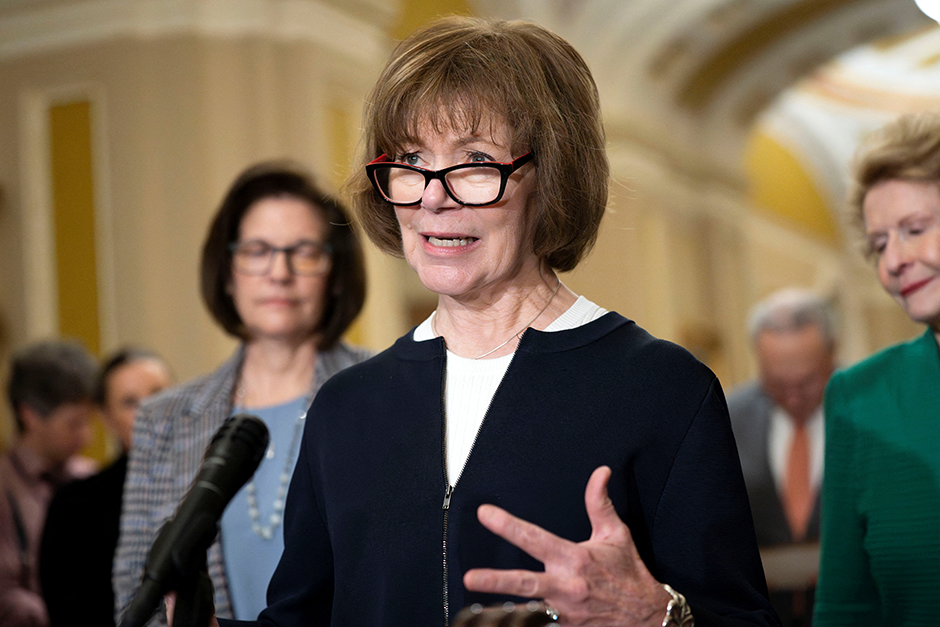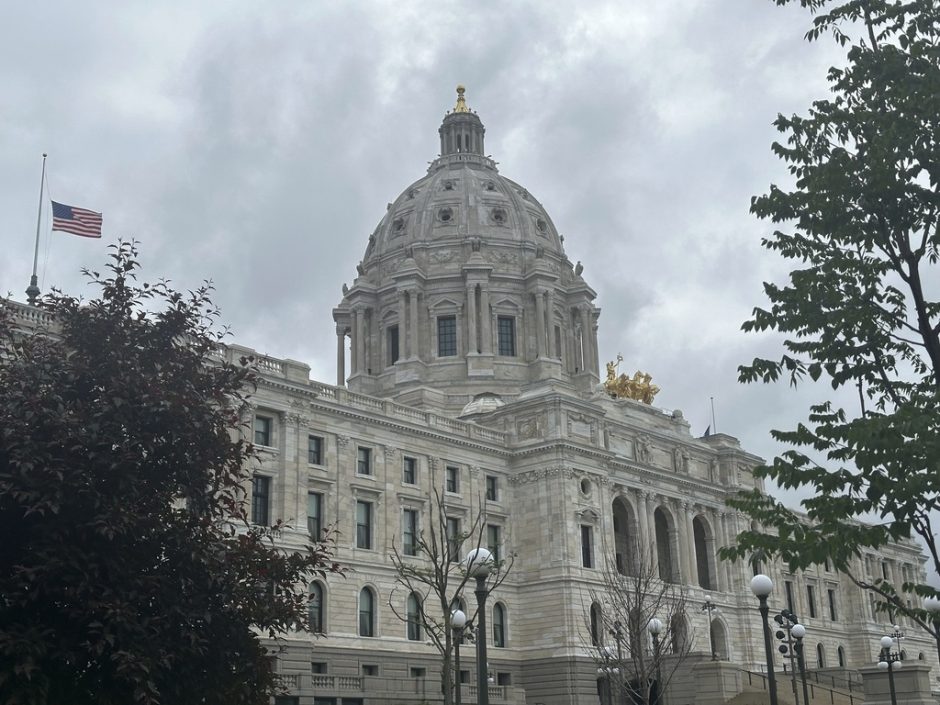



WASHINGTON — A Trump-appointed federal judge recently ruled that the president can’t use an 18th century law that allows the removal of non-citizens in times of war or invasion.
U.S. District Judge Fernando Rodriguez said President Trump’s use of the wartime Alien and Sedition Acts was “unlawful” and had been improperly invoked.
It was just one of the latest Trump defeats in the nation’s courts. His administration has been sued nearly 200 times during the president’s first 100 days in office, and new lawsuits are being filed nearly every day.
Judges — who have ruled against the Trump administration 70 times and left his policies in effect in 47 other instances, with 63 cases remaining to be resolved, according to an Associated Press tracker — are now nearly the only check on a president who has rapidly consolidated his power.
According to the AP tracker, the largest number of lawsuits involved Trump’s immigration policies, and the second largest was his administration’s clawback of federal funding. After that, the actions of the Elon Musk-led Department of Government Efficiency (DOGE) actions have been the most challenged in court, as well as efforts to eradicate diversity, equity and inclusion (DEI) policies and transgender rights and impose voter restrictions.
Related: Trump 2.0: How the president’s first 100 days have impacted Minnesota
The frenetic legal activity has been unprecedented, as have the attacks Trump and his surrogates have leveled on judges who have not ruled in his favor. Trump and his administration have also ignored, or not fully complied with several court rulings. That has led legal experts to question the strength – and even the survival – of the nation’s rule of law.
Peter Larsen, a law professor at Mitchell Hamline School of Law, said it all depends on how the U.S. Supreme Court rules in key cases making their way to the nation’s highest court and whether Trump respects decisions that don’t go his way.

Cases making their way in federal courts to the Supreme Court involve several Minnesota has joined as part of a coalition of Democratic states. Lawsuits have also been filed by nonprofits, universities, Democratic political organizations and individuals, including federal workers who have been abruptly and unexpectedly fired.
Related: Ellison sues Trump over end to public school diversity programs
Ultimately, it will be the Supreme Court with its three Trump appointees, that will decide whether the president’s sweeping actions on immigration, government spending and civil rights are constitutional.
“Trump will continue to push against the court until the Supreme Court breaks or the court pushes back forcefully, at which point it will be up to Congress on how to respond,” Larsen said.
The GOP-led Congress has been careful to not to cross Trump, fearful of the president’s ability to raise MAGA support for primary challengers and billionaire Elon Musk’s threats to spend millions of dollars to help those challengers.
But there are tiny cracks in what’s been unwavering Republican support for Trump’s actions. Contempt for the rule of law could be a bridge too far, Larsen said, leading to congressional action.
Those include investigative hearings on some of the dozens of executive actions Trump has issued to make radical changes in the federal government and the approval of legislation that would limit the president’s action. Some GOP lawmakers have sponsored bills that would take back Congress’s authority over tariff policy.
Larsen also said another impeachment could also be on the table.
The U.S. Supreme Court declined to block an order by a lower court to “facilitate” bringing back Kilmar Abrego Garcia, a Salvadoran immigrant sent to a maximum-security prison in El Salvador under Trump’s use of the Aliens and Seditions Act. It also upheld a lower court decision that required the release of frozen U.S. Agency for International Development Fund grants.
But the conservative court’s majority has been limited in its pushback, Larsen said.
“So far, the Supreme Court, when it disagreed with him, has been somewhat meek and temperate,” Larsen said.
‘Warning signs that we can’t ignore’
Attorneys across the nation celebrate May 1 as Law Day, retaking their oaths at courthouses across the nation, including dozens at the Hennepin County Courthouse. There’s evidence more lawyers participated this year in the annual event that first took place in 1958 because many believe the rule of law faces threat.
“The principles of judicial independence and the independence of the legal profession – cornerstones of American democracy – are facing unprecedented challenges across the country,” said a statement from the Minnesota Bar Association that heralded Law Day. “Attacks on judges for unpopular rulings, political pressure on legal professionals and law firms, and a growing distrust of the legal system threaten the very foundation of fairness and equal justice.”
Minnesota Bar Association President Samuel Edmunds told lawyers gathered outside the Hennepin County courthouse that the threats were “warning signs and we cannot ignore them.”
Hannah Dugan, a Milwaukee county judge, was arrested by the FBI last month after she obstructed federal authorities from detaining an undocumented immigrant in her courtroom. And a former New Mexico judge was arrested for allegedly housing three undocumented Venezuelan immigrants.
“What has happened to our judiciary is beyond me,” U.S. Attorney General Pam Bondi told Fox News in response to the arrests. “We are sending a very strong message today … we will come after you and we will prosecute you. We will find you.”

Trump has also taken to Truth Social to insult and threaten judges who have ruled against his actions, calling them “communists” and “corrupt” although he appointed some of them in his first term.
And Judge John Deacon Bates of the U.S. District Court for the District of Columbia, who directed the administration to restore health-related webpages that were removed to comply with an executive order on gender, is facing impeachment threats from GOP lawmakers.
Last week, at a ceremonial unveiling of his portrait at his courthouse, Bates who was appointed by former President George W. Bush said “my colleagues on the bench do not practice judging as a partisan enterprise” to an audience that included Chief Justice John Roberts and three other members of the Supreme Court.
Trump has also attacked law firms that have taken action against his administration – prompting nine top international firms to make a deal with the president to provide a total of $1 billion in free legal work. Meanwhile, Trump has called other pro-bono cases – against him – “harmful” and admonished lawyers not to do the work.
‘More energy than I need to fight’
Minnesota Attorney General Keith Ellison has joined other Democratic attorneys general in 20 cases against the Trump administration, including the first one that challenged the president’s attempt to abolish birthright citizenship for children of undocumented immigrants.
Ellison and the Democratic attorneys general have won temporary orders unblocking frozen federal funding and halting DOGE access to private individual information at the Treasury Department.
And more lawsuits are pending. Those include one that would block the Trump administration from stripping money from K-12 schools that reject a new interpretation of 1964 Civil Rights Act to eliminate all mention of diversity and halting the dismantling AmeriCorps, a volunteer public service agency.
Related: Ellison files preemptive lawsuit against Trump on transgender sports ban
Ellison said he may also join a suit to stop the layoffs of employees of the Social Security Administration. And he’s ready to file others.
“I’ve got more energy than I need to fight this guy,” he said, referring to Trump. “Each of these cases affect a segment of the population in a significant way.”

Ellison said the problem is not that Trump is using executive power to effect change, but that he’s doing so in a “fundamentally unconstitutional way.”
For instance, if he wanted to end birthright citizenship for some Americans, Ellison said Trump should seek changes to the U.S. Constitution. And instead of undermining Congress’ authority when it comes to government spending, he should work with lawmakers to approve bills.
As far as ignoring the courts, Ellison said the Trump administration has “more or less” obeyed rulings that relate to lawsuits brought by the Democratic attorneys general.
But he’s aware that a constitutional crisis is possible if Trump refuses to comply with adverse court rulings.
Related: Keith Ellison, fellow Democratic attorneys general, hold a listening session in St. Paul in a campaign against Trump policies
Yet Trump administration lawyers may have learned lessons from experience, which could boost their chances of courtroom wins.
Larsen of the Mitchell Hamline School of Law said that during his first term, when Trump signed far fewer executive orders, his administration lost ill-prepared cases and sometimes had to redraft those orders to pass legal muster.
“He and his administration are much savvier this time around than in his first term when they stumbled and fumbled around,” Larsen said. “They are very forceful now and the executive actions are happening at a rapacious pace.”
The post Trump v. Rule of Law is a case that is riveting lawyers, judges and legal experts appeared first on MinnPost.











































